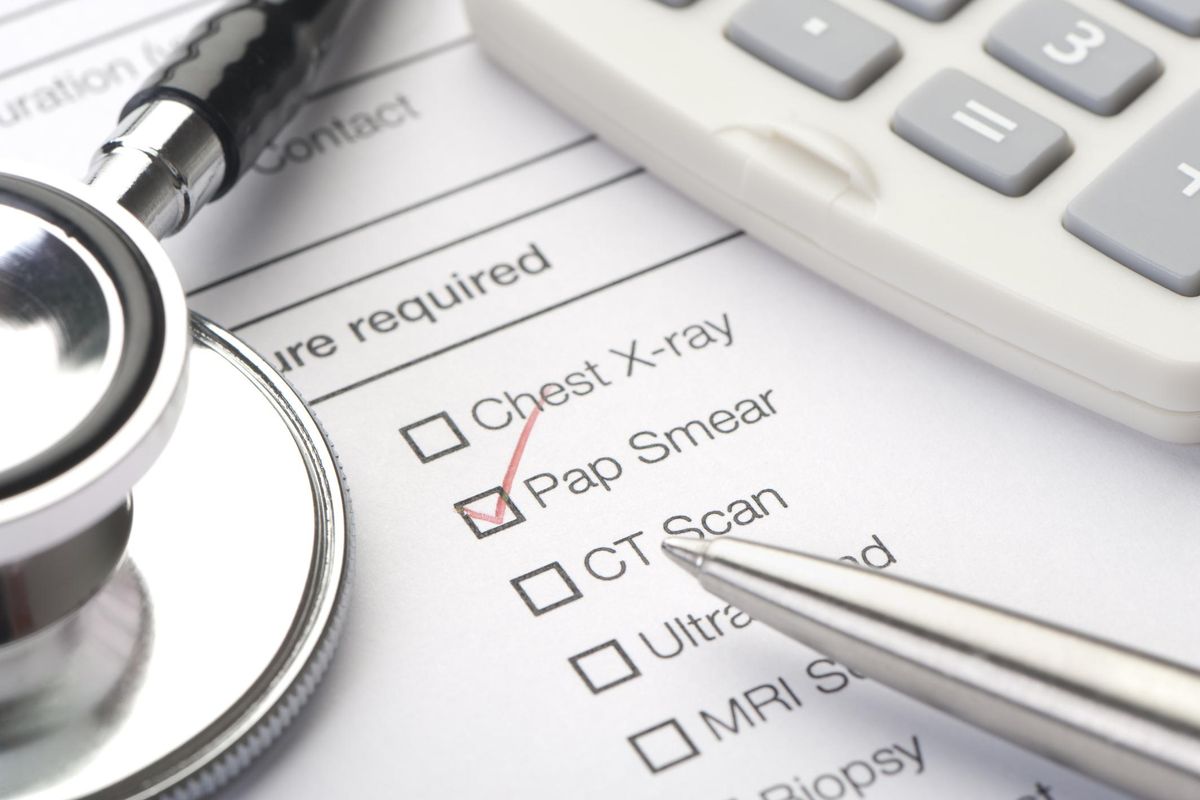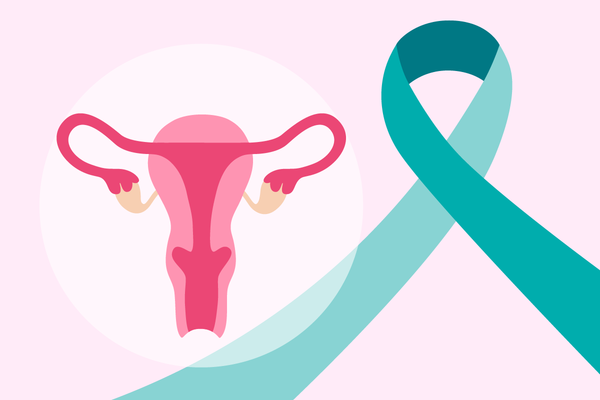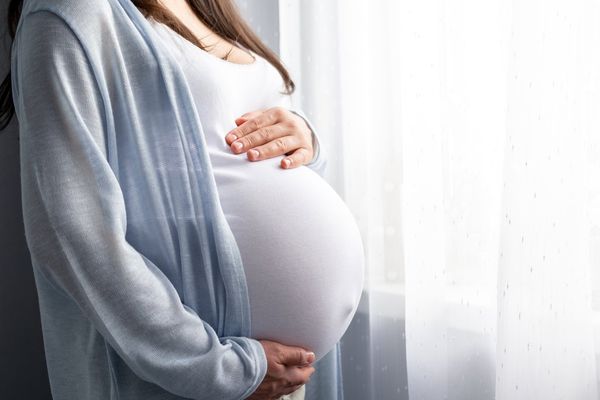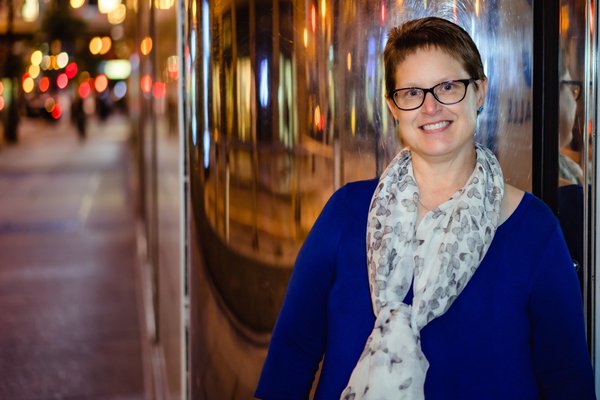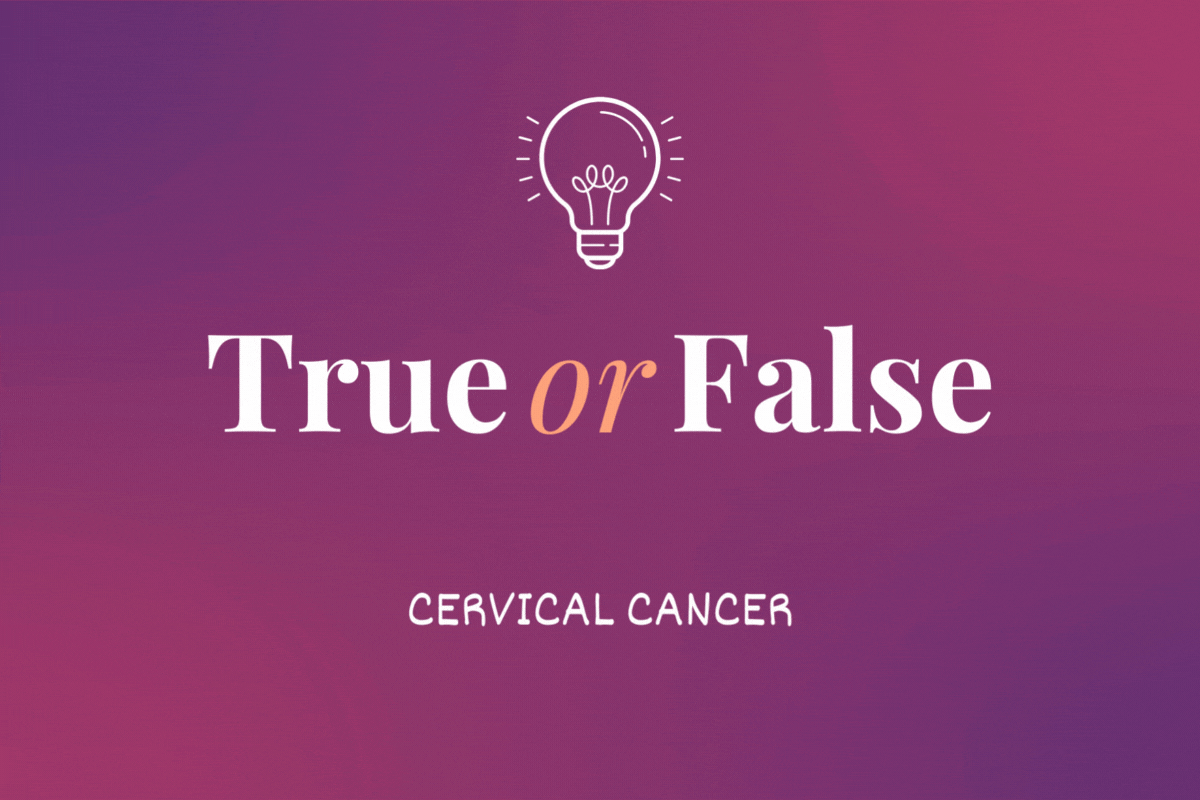Even though she was having symptoms like pelvic pain and bleeding for almost a year before she finally saw a doctor, Lily Taylor wasn't expecting bad news. Never mind that she hadn't been getting regular Pap tests, HPV tests or other recommended screenings. She figured she'd be in and out of the clinic in no time.
But the appointment took longer than expected. "I remember it being the scariest thing. She was examining me, and it was taking forever," Taylor said. Her not-so-quick trip to the doctor led to a biopsy, which led to a devastating diagnosis — cervical cancer. Taylor was blindsided.
Cervical cancer is cancer that starts in the cells lining the cervix — the lower part of the uterus that connects to the top of the vagina. An estimated 14,480 women will be diagnosed with invasive cervical cancer in 2021, and about 4,290 will die from it.
Once among the deadliest cancers for American women, cervical cancer is now one of the most preventable, due in large part to the increased use of screenings like the Pap test and human papillomavirus (HPV) test. But these screenings can only prevent cervical cancer if people get them.
Taylor's story is particularly meaningful when you consider the Covid-19 pandemic. Women like her were putting off screenings even before Covid-19, but fears about the virus, along with limits on nonemergency appointments and capacity restrictions at clinics, have caused a significant increase in the number of people delaying care.
Cervical cancer screening, explained
For the Pap test, cells are collected from the cervix and examined for any degree of abnormal change and signs of precancerous or cancerous cells. "Screening allows us to identify pre-cancerous lesions and treat them to prevent a diagnosis of cancer, or to diagnose cervical cancer at an early stage when it is still curable," said Dr. Deanna Teoh, a gynecologic oncologist and assistant professor in the Department of Obstetrics, Gynecology and Women's Health (OBGYN) at the University of Minnesota.
The HPV test looks for high-risk types of HPV infection that are most likely to cause cervical cancer. About 90% of cervical cancer is caused by HPV infection, which is so common that it affects nearly every sexually active person at some point in their lives. Most people's immune systems clear the HPV infection, but when an HPV infection doesn't clear, the risk of cervical cancer increases.
Screenings postponed during the pandemic
Screening for cervical cancer may involve a Pap plus HPV test (co-testing) every five years, a Pap test alone every three years or an HPV test alone every five years. Although guidelines vary on when to start screening and what test(s) to use, the objective is the same: to get regular cervical cancer screening.
But many women aren't following these or any recommendations, and they're missing screening altogether. One study conducted between 2005 and 2016 found that only 64.6% of women ages 30 to 65 were up to date with their screenings in 2016. Other research shows that the older women are, the more likely they have never been tested for cervical cancer or haven't been tested in the previous five years. And the Covid-19 pandemic has made things much worse.
A large health system in California saw the rate of cervical cancer screenings drop by about 80% between mid-March and mid-June of 2020 compared to the same timespan in 2019. At the Northeast's largest healthcare system, a decrease in cancer screenings during the first surge of the pandemic led to a sharp decline in cancer and precancer diagnoses.
"While it takes time for precancerous lesions to progress to cancer, putting off screenings may allow the lesion to progress undetected," said Teoh. When they're not caught in a screening, abnormal cells have the opportunity to change from precancerous to cancerous.
Barriers to screening extend beyond Covid-19
As Taylor's story illustrates, the pandemic isn't the only thing preventing people from getting screened for cervical cancer. The updated guidelines may be confusing for some, while others may feel too busy to worry about preventive care. And many people don't have access to screenings.
Race, ethnicity, socioeconomic status and region greatly influence the number of people being screened for cervical cancer. More Black and Hispanic women get cervical cancer than white women, possibly because of limited access to screenings and follow-up treatment. And women with low incomes who live in remote, underserved communities without healthcare facilities that provide screenings and HPV vaccination are often unable to benefit from these lifesaving interventions.
Safe screening and self-testing
Continued limits on capacity and appointments may make it difficult for women to get screenings at clinics, even ones that are resuming preventive care services.
So, how can people safely get screened for cervical cancer?
For many, physically going in for a screening can be done safely with the proper precautions in place. Women should feel empowered to talk to their providers about scheduling an appointment and call their clinic or office to ensure they're using proper precautions to protect patients and staff from Covid-19. Strict infection control measures are expected to remain in place for an extended period as we move through the pandemic. Wearing a mask and getting a Covid-19 vaccine as soon as possible will also help to keep you safe wherever you go.
Screening saves lives
Taylor is now 34 and cancer-free, but treatment took a massive toll. She's unable to have children and takes medication to manage symptoms of early menopause. Mentally, she's dealing with the trauma of living in a body that has been forever changed by cancer.
Hoping to spare other people the suffering she experienced, Taylor is committed to raising awareness about the importance of cervical cancer screenings.
"I promise you do not want to go through any of this," she said. "I beg of you to get your screenings and vaccines; it does not take much time out of your day but can save your life."
- Preventive Health Screenings for Women - HealthyWomen ›
- Stay Healthy With Pap and HPV Tests - HealthyWomen ›
- 9 Warning Signs of Cervical Cancer You Shouldn't Ignore ... ›
- Cervical Cancer - HealthyWomen ›
- My Close Friend’s Cancer Diagnosis Helped Save My Life - HealthyWomen ›
- How a Cervical Cancer Diagnosis in My 20s Taught Me How to Live - HealthyWomen ›
- I Could Have Stopped Cervical Cancer With a Routine Test - HealthyWomen ›
- Why do I need a Pap test and an HPV test? - HealthyWomen ›
- HPV, Cervical Cancer and Cervical Cancer Screening: What Do You Need to Know? - HealthyWomen ›
- Health Disparities With Cervical Cancer Treatment - HealthyWomen ›

